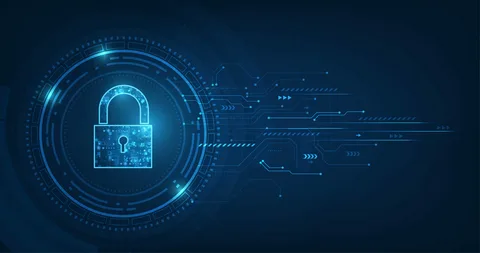In today’s digital age, children are growing up with technology at their fingertips. From online classes and educational apps to social media and games, the internet offers young students a world of opportunities. However, this digital landscape also comes with risks that they need to understand. Cybersecurity has become a crucial skill for students, enabling them to navigate the online world safely and responsibly. Here’s why cybersecurity is essential for young students and how they can protect themselves online.
1. Understanding the Digital World
For many students, the internet is a place for learning, socializing, and entertainment. However, it’s also a space where personal information can be easily shared—sometimes unknowingly. Teaching children about cybersecurity helps them understand the value of their personal data and why it needs to be protected. Knowing how to safeguard personal information—such as their name, address, school, and phone number—can prevent identity theft, cyberbullying, and other threats.
2. Building Awareness of Online Threats
Young students may not always recognize online threats like phishing scams, malware, or harmful links. By learning about these threats, they become more aware and cautious in their online activities. For example, knowing how to spot suspicious emails or pop-up ads helps them avoid clicking on malicious links that could compromise their personal information or the security of their devices.
3. Encouraging Safe Online Behavior
Cybersecurity education encourages safe online behavior by teaching students the importance of strong passwords, secure browsing habits, and privacy settings on social media. Understanding these concepts early on helps them develop good habits that will protect them throughout their lives. Encouraging students to think before they click, share, or download fosters a sense of responsibility and mindfulness online.
4. Preventing Cyberbullying and Online Harassment
Cyberbullying is a significant concern for young people. Knowing how to protect themselves and report inappropriate behavior is crucial. By understanding the basics of cybersecurity, students learn how to manage their online presence, block harmful contacts, and report any form of online harassment. This knowledge empowers them to stand up against cyberbullying and seek help when needed.
5. Preparing for a Tech-Driven Future
As technology continues to evolve, so do the skills required to use it safely and effectively. By introducing cybersecurity at a young age, we are preparing students for a future where digital literacy and safety are as essential as traditional literacy. Understanding cybersecurity concepts can even spark an interest in STEM (Science, Technology, Engineering, and Mathematics) fields, opening the door to future career opportunities in technology and cybersecurity.
6. Protecting Their Digital Footprint
Every action online contributes to a person’s digital footprint. For young students, this footprint is just beginning to form. Teaching them about cybersecurity helps them understand the long-term impact of their online actions. What they post today can have consequences for their future, including college admissions or job opportunities. Encouraging them to think critically about what they share and who they interact with helps them maintain a positive digital reputation.
7. Empowering Students to Take Control of Their Online Safety
Cybersecurity isn’t just about protecting information; it’s about empowering students to take control of their online experiences. By understanding the risks and knowing how to protect themselves, students feel more confident and capable in their digital interactions. They learn that they have the power to make choices that enhance their safety and well-being online.
Tips for Young Students to Stay Safe Online:
- Use Strong, Unique Passwords: Create passwords that are difficult to guess and use different ones for each account.
- Enable Two-Factor Authentication: Add an extra layer of security by enabling two-factor authentication on accounts.
- Think Before You Click: Be cautious of links in emails, messages, and websites, especially from unknown sources.
- Keep Personal Information Private: Avoid sharing personal details like your address, school, or phone number online.
- Be Careful with Downloads: Only download apps, games, or files from trusted sources.
- Update Regularly: Keep software, apps, and devices updated to protect against security vulnerabilities.
- Speak Up: If something online makes you uncomfortable or if you experience cyberbullying, talk to a trusted adult immediately.
Conclusion
Cybersecurity is not just a concern for adults; it is vital for young students who are growing up in an increasingly digital world. By educating them about the importance of cybersecurity, we empower them to make safe and informed choices online, protect their personal information, and build a secure digital future. The earlier they learn these critical skills, the better prepared they will be to face the challenges of our connected world.
Let’s start this journey toward digital safety with our youngest users—they are, after all, the future of the internet.



Recent Comments